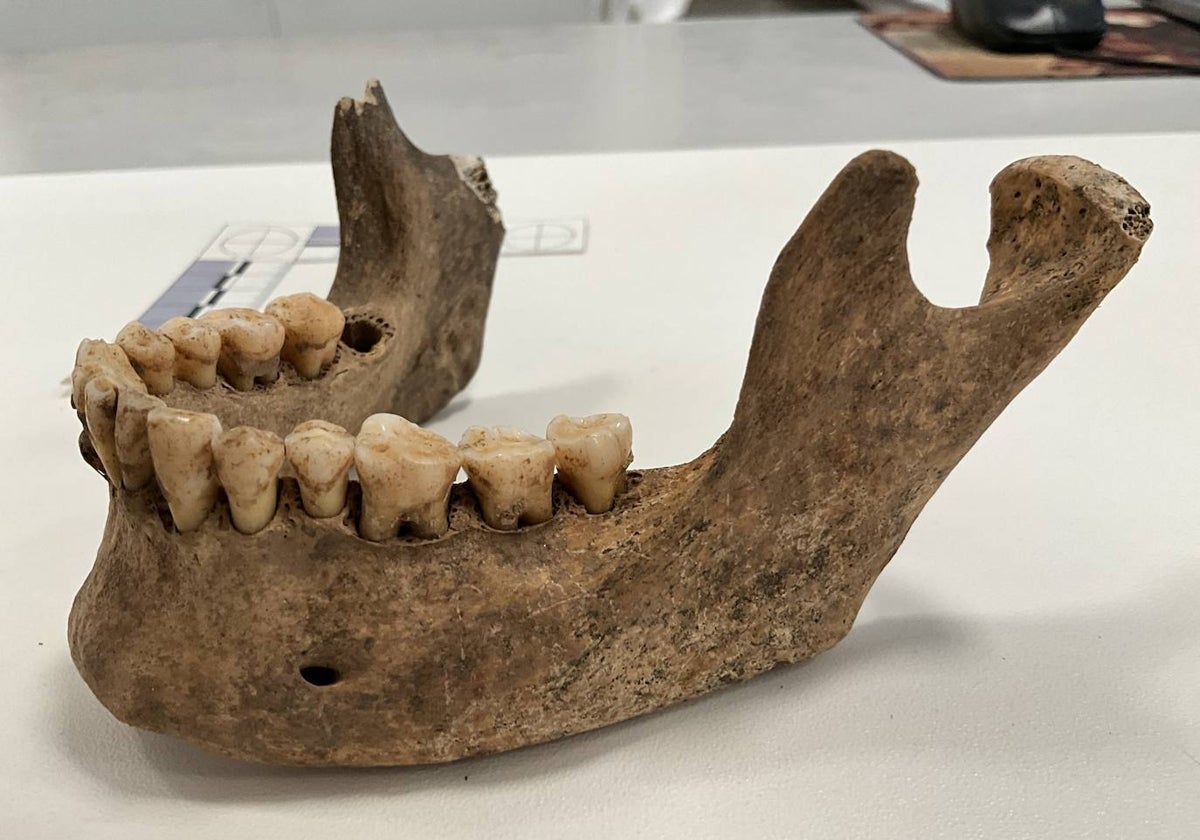

Sections
Highlight

The expansion of the Phoenicians transformed the Mediterranean and their legacy has been proven in Malaga province thanks to the abundant remains found of the trade, culture and religion of the people who came from the east. In addition to archaeological discoveries, scientific advances are increasingly providing new information about our past.
One of these is palaeogenomics, the study of ancient DNA, a technique that is the focus of the latest international study in which the University of Malaga (UMA) has participated with the aim of finding the genetic footprint of the first Phoenicians who arrived in the central and western Mediterranean.
Published by Nature, the results have even surprised experts who expected to find a clear direct inheritance. But the evidence indicates the opposite, as has also been seen in the remains of the Malaga inhabitants that have been preserved from the period.
"There is scarce DNA, which has been a surprise since the Phoenician culture was adopted, but the population remained basically local people," explains Professor Enrique Viguera, head of the Genetics Department at the UMA, who has participated, along with archaeologists Sonia López Chamizo and José Suárez, in this international study.
The study concludes that the Phoenicians "were genetically diverse with almost no eastern ancestors". Viguera explains, "We use an iPhone, we take the kids to McDonald's and we celebrate Halloween, so we adopt US culture, but I'm still local. It is a very basic simile, but genetically the Phoenicians did not invade, but there was a cultural and economic transfer and their customs were assimilated."
"It was a surprise, but the results were the opposite of what we expected," admits Viguera, who collaborated with the Spanish biologist and DNA expert Carles Lalueza Fox in this study, which was directed by Harald Ringbauer (Max Planck Institute for Evolutionary Anthropology in Leipzig, Germany), together with David Reich (Harvard University, USA) and Ilan Gronau (Reichman University, Israel), with the participation of more than 30 researchers from European and Mediterranean institutions.
This scarce presence of Phoenician genomics is not only found in Malaga, but also in the rest of the Phoenician-Punic sites in the east, north Africa, Sicily, Sardinia, Ibiza and the Iberian Peninsula (14 in total), which have participated in this project in which the DNA of 210 individuals has been analysed, of which eight are from Malaga.
The research was carried out by archaeologist Sonia López Chamizo, the results of which are also included in her recently submitted doctoral thesis, which she will soon be completing. The specialist emphasises the other great discovery of this project, since the scarce trace of the Eastern Phoenicians is joined by a notable genetic diversity of the local population in the Punic period.
"We have obtained a still photo that indicates that Malaga was already cosmopolitan and was a very important link in the Mediterranean with the interior of the peninsula," says the expert, who adds that our case is similar to that of other Phoenician sites, such as Carthage or Italy, "where the same dynamics are maintained with a lot of population movement and intense contact. "The Mediterranean was like a great highway of ships sailing and transmitting people and ideas," she explains.
Despite the data, López Chamizo advocates further research and increasing the sample of the eight Punic-era members who have participated in the study in order to draw even more accurate conclusions. UMA archaeologist José Suárez, director of the site of Cerro del Villar , explains that this study has involved the remains of individuals found in city, in Mundo Nuevo, Mármoles and Zambrana.
"We do not have analysable Phoenician remains from the oldest phases - from the ninth century BC onwards - because they were cremated, but in the sixth century B.C. - Punic period - customs changed and burials became widespread, so it is from that time onwards that we have samples, such as the skull and teeth, from which DNA can be extracted", explains the expert, who adds that these burials probably belonged to aristocrats of the time, so we are also dealing with a very specific population.
This genetic diversity of the Phoenician populations of the Mediterranean has, however, made it possible to find kinship with other members participating in the study in the eight members analysed from Malaga. These 'cousins' - in the second or third line - lived in populations in the Aegean-Mycenaean area (Greece) and in Sicily, which confirms precisely this genomic 'contamination' and contact with other Phoenician cities. A relationship that archaeology had already shown with the abundant Greek pottery found at sites in Malaga, as in the case of Cerro del Villar.
In contrast, one of the samples on which most hopes had been pinned was the one taken from the well-known Tomb of the Warrior, which was discovered in 2012 on a site between Calle Refino and Calle Jinetes, and which is on display at the Museum of Malaga. Experts had hoped to find an answer to theories about the Greek or local provenance of this individual, but despite twice insisting on analysis, the petrous bone remains sent to Harvard were negative. "The secret of his origin has been taken to the grave," says Viguera. At least, for today's science.
Publicidad
Publicidad
Publicidad
Publicidad
Esta funcionalidad es exclusiva para registrados.
Reporta un error en esta noticia

Debido a un error no hemos podido dar de alta tu suscripción.
Por favor, ponte en contacto con Atención al Cliente.

¡Bienvenido a SURINENGLISH!

Tu suscripción con Google se ha realizado correctamente, pero ya tenías otra suscripción activa en SURINENGLISH.
Déjanos tus datos y nos pondremos en contacto contigo para analizar tu caso

¡Tu suscripción con Google se ha realizado correctamente!
La compra se ha asociado al siguiente email
Comentar es una ventaja exclusiva para registrados
¿Ya eres registrado?
Inicia sesiónNecesitas ser suscriptor para poder votar.